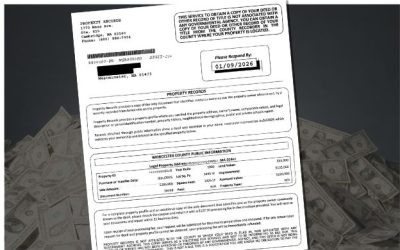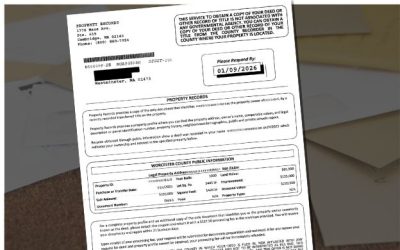The 2025 Transparency Push
What Home Sellers Need to Know Before ListingIf you’re preparing to sell a home in late 2025, you need to know this: the federal radar is shifting. The Financial Crimes Enforcement Network (FinCEN) is set to require detailed reporting on many residential real-estate transfers before closing. While the effective date has been postponed, the changes are coming—and savvy sellers can avoid surprise delays or liability.
Why it matters
Historically, “all-cash” sales or transfers to trusts or legal entities (rather than individuals) have been hotbeds for money-laundering and illicit financing. FinCEN has been tracking these via Geographic Targeting Orders (GTOs) for certain metros.
Now the scope is broadening. The final rule requires certain “reporting persons” (title companies, closing attorneys, settlement agents) to file a Real Estate Report when a residential property is transferred without a regulated financial institution mortgage and the buyer is an entity or trust.
For sellers, that means your transaction may be subject to extra scrutiny—even if you’re not the buyer.
What sellers should watch for
- Is the buyer an LLC, trust, corporation or other entity rather than an individual? If yes → higher risk of reporting.
- Is the property being transferred without a traditional bank-backed mortgage (i.e., all-cash or private financing)? If yes → reporting likely.
- Does your closing involve a title or settlement agent, or other professional who will be the “reporting person”? If so, they may request extra documentation.
- Timing & records: The rule requires that reports be filed within the later of (a) the end of the month after closing or (b) 30 calendar days.
- Documentation retention: The reporting person must retain certifications for five years.
Pre-listing checklist for sellers
- Ask your listing agent or closing attorney: “Does the buyer entity trigger the new rule?”
- Ensure you have full, transparent documentation of your own transaction (seller identity, funds of sale, chain of title) to avoid look-back issues.
- If you’re selling via a trust or entity yourself (rather than a straightforward individual sale), expect the buyer and their professionals to ask questions. Be prepared with proper disclosures.
- If you’re marketing to cash buyers or investors that use LLCs/trusts, be aware: this may slow closing or require extra compliance steps.
Ask your closing professional how they will handle the “reporting person” designation and timing. Clarify whether you as seller may be asked for extra info.
Why acting now matters
Even though the effective date of some elements has been delayed (see below), the preparation window is now. Title companies, attorneys and escrow professionals are updating forms, shifting workflows and training staff. Sellers who treat this as “just another closing” risk being caught off guard, facing delayed close, additional fees or last-minute hold-ups.
Key timeline note
Originally the rule was scheduled to go live December 1, 2025. However, the rule’s reporting requirements have been postponed until March 1, 2026.
Importantly: the existing GTOs remain in force and enforcement may continue in many jurisdictions.
Thus: selling in late 2025 means you’re operating in a transitional zone—don’t assume “business as usual.”
Bottom line for sellers
If you’re about to list a property, especially one being sold to an entity or trust, or being bought with all-cash, treat your closing as a compliance event. Ask the right questions early. If you anticipate transparency issues, align your team (agent, attorney, title company) now. That way you protect your timeline, reputation—and the transaction itself.
Looking Ahead
Staying Ready in an Uncertain Market
Whether you’re buying, selling, or refinancing, an experienced attorney helps safeguard your transaction. From rate-lock coordination to closing documentation, The Law Office of David R. Rocheford, Jr., P.C. ensures your real estate deal stays on track — no matter what direction the market moves next.
SOURCES
- FinCEN Residential Real Estate Rule fact sheet. https://www.fincen.gov/system/files/shared/RREFactSheet.pdf
- FinCEN delays implementation until March 2026. https://www.hklaw.com/en/insights/publications/2025/10/fincen-delays-residential-real-estate-transfer-reporting-rule
- Insights on real-estate closing professionals’ obligations. https://www.buchalter.com/insights/new-fincen-rule-on-transparency-reporting-in-residential-real-estate-closings
- Title industry overview of reporting obligations. https://www.oldrepublictitle.com/title-agents/fincen-reporting
Providing title, escrow, closing and settlement services to clients throughout Massachusetts and New Hampshire
Recent News
What Real Estate Agents Need to Know About FinCEN’s New Residential Real Estate Reporting Rule (Effective March 1, 2026)
SUMMARY: Starting March 1, 2026, FinCEN’s Residential Real Estate Rule requires a Real Estate Report for certain non-financed residential transfers where the buyer is an entity or trust (common “cash/opaque ownership” scenarios). Real estate agents do not file the...
Why New Homeowners Get Targeted After Closing
For many buyers, one of the most surprising parts of homeownership happens after the closing is complete: the sudden increase in mail related to their property. This isn’t accidental—and it isn’t unique to any one company or offer. It’s the predictable result of how...
New Homeowners Beware: “Recorded Deed” Letters That Aren’t What They Seem
Buying your first home is exciting—and it often comes with a mountain of paperwork. Unfortunately, it can also make you a target for misleading solicitations that appear official and urgent, but offer nothing you actually need.One of the most common examples we see...








